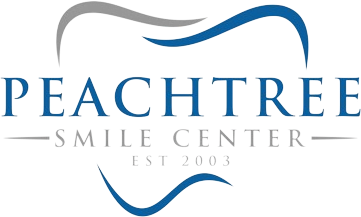Did you know that most serious dental problems can be prevented with proper preventive care? Recent studies show that for every dollar spent on preventive dentistry, patients can save up to $50 on emergency dental procedures and restorative treatments.
At its core, preventive dentistry is about taking proactive steps to maintain your oral health rather than waiting to treat problems after they develop. By understanding and implementing proper preventive measures, you can protect your smile, save money, and avoid the discomfort of dental problems.
Understanding Preventive Dentistry: The Foundation of Oral Health
Preventive dentistry encompasses all the practices and procedures designed to maintain healthy teeth and gums throughout your lifetime. This approach focuses on early detection, regular maintenance, and patient education to stop dental problems before they start. By combining professional dental care with good home hygiene habits, we can significantly reduce your risk of developing serious oral health issues.
Common Dental Issues
- Tooth Decay: Regular cleanings and fluoride treatments strengthen your teeth’s natural defenses against cavity-causing bacteria, preventing the need for fillings or more extensive procedures.
- Periodontal Disease: Professional cleanings remove plaque and tartar buildup that can lead to gingivitis and periodontitis, protecting both your gums and the supporting bone structure.
- Bad Breath: Proper oral hygiene practices and regular dental cleanings eliminate bacteria and food particles that cause persistent bad breath.
- Tooth Loss: By addressing issues early and maintaining good oral health, you can prevent the advanced decay and gum disease that often lead to tooth loss.
- Stained Teeth: Regular cleanings help remove surface stains before they become permanent, maintaining your smile’s natural brightness.
Preventive Dental Services and Procedures
Professional Dental Cleanings
Professional cleanings are the cornerstone of preventive dentistry. During these dental visits, hygienists use specialized tools to remove plaque and tartar buildup that regular brushing can’t eliminate. They also polish your teeth to remove surface stains and apply fluoride treatments when necessary to strengthen your enamel and keep your gums healthy.
Dental Exams and X-rays
Regular dental exams allow your dentist to spot potential problems early. These comprehensive check-ups include visual examinations, digital X-rays to detect hidden oral diseases and oral cancer screenings. Early detection through these preventive dentistry measures often means simpler, less expensive treatments.
Dental Sealants
Dental sealants are protective coatings applied to the chewing surfaces of back teeth. This preventive treatment is particularly effective for children and teenagers, creating a barrier that prevents bacteria and food particles from settling in hard-to-clean grooves and causing decay.
Fluoride Treatments
Professional fluoride treatments provide an extra layer of protection against tooth decay. This mineral strengthens tooth enamel and can even reverse early stages of decay. Your dentist can apply concentrated fluoride in the form of a gel, foam, or varnish during your regular check-up.
Patient Education
A crucial aspect of preventive dentistry is teaching proper oral hygiene techniques. Your dental team will demonstrate correct brushing and flossing methods, recommend appropriate dental care products, and provide guidance on diet and lifestyle choices that affect your oral health.
Home Care Practices for Optimal Dental Health
While professional preventive dentistry is crucial, your daily home care routine plays an equally important role in maintaining oral health. Regular home care prevents plaque buildup, reduces your risk of cavities and gum disease, and helps maintain fresh breath. By following proper techniques and using the right tools, you can maximize the benefits of your preventive dental care routine.
Proper Brushing and Flossing Techniques
- Choose the Right Tools: Select a soft-bristled toothbrush and fluoride toothpaste. Replace your toothbrush every 3-4 months or sooner if the bristles are frayed.
- Position Your Brush: Hold your toothbrush at a 45-degree angle to your gums and use gentle, circular motions.
- Clean All Surfaces: Brush the outer, inner, and chewing surfaces of all teeth for at least two minutes, twice daily.
- Floss Properly: Use about 18 inches of floss, wrapping most around your middle fingers and leaving 1-2 inches to work with.
- Move Methodically: Gently slide the floss between teeth and curve it into a C-shape around each tooth, moving it up and down.
Dietary Choices for Dental Health
- Calcium-Rich Foods: Dairy products, leafy greens, and fortified foods strengthen tooth enamel and support overall dental health.
- Crunchy Fruits and Vegetables: Apples, carrots, and celery act as natural tooth cleaners and stimulate saliva production.
- Sugar-Free Options: Choose sugar-free drinks and snacks to reduce the risk of tooth decay, as harmful bacteria feed on sugars.
- Water Consumption: Drink plenty of water throughout the day to wash away food particles and bacteria while maintaining proper saliva levels.
Supplementary Oral Care Tools
- Water Flossers: These devices use pressurized water to clean between teeth and below the gumline, ideal for people with braces or bridges.
- Interdental Brushes: Small brushes that fit between teeth help remove plaque in spaces too large for regular floss.
- Tongue Scrapers: These tools remove bacteria and food debris from your tongue’s surface, helping prevent bad breath.
- Fluoride Mouthwash: Using an antimicrobial mouthwash helps reduce bacteria and strengthens tooth enamel.
Benefits of Preventive Dental Care
Cost Savings
Regular preventive dentistry appointments help you avoid expensive dental procedures in the future. By investing in prevention, you can save thousands of dollars that might otherwise be spent on fillings, root canals, or tooth replacements. Early detection through preventive care means simpler, less costly treatments when issues do arise.
Better Overall Health
Your oral health is closely connected to your overall well-being. Good preventive dental care can help reduce your risk of serious health conditions like heart disease, diabetes complications, and respiratory infections. Regular dental check-ups can also help detect early signs of systemic health issues that first appear in the mouth.
Enhanced Quality of Life
Maintaining good oral health through preventive dentistry helps you avoid the pain and discomfort associated with dental problems. You’ll enjoy better breath, a brighter smile, and increased confidence in social situations. Plus, healthy teeth and gums make it easier to eat, speak, and enjoy your favorite foods without restrictions.
Conclusion
Preventive dentistry is your best defense against serious oral health issues and expensive dental procedures. By combining regular professional care with proper home hygiene practices, you can maintain a healthy smile for life and avoid many common dental problems.
Remember that prevention is always better than cure when it comes to your oral health. Schedule your preventive dentistry appointment today, and take the first step toward a lifetime of healthy smiles. Your future self will thank you for making this investment in your oral health.



